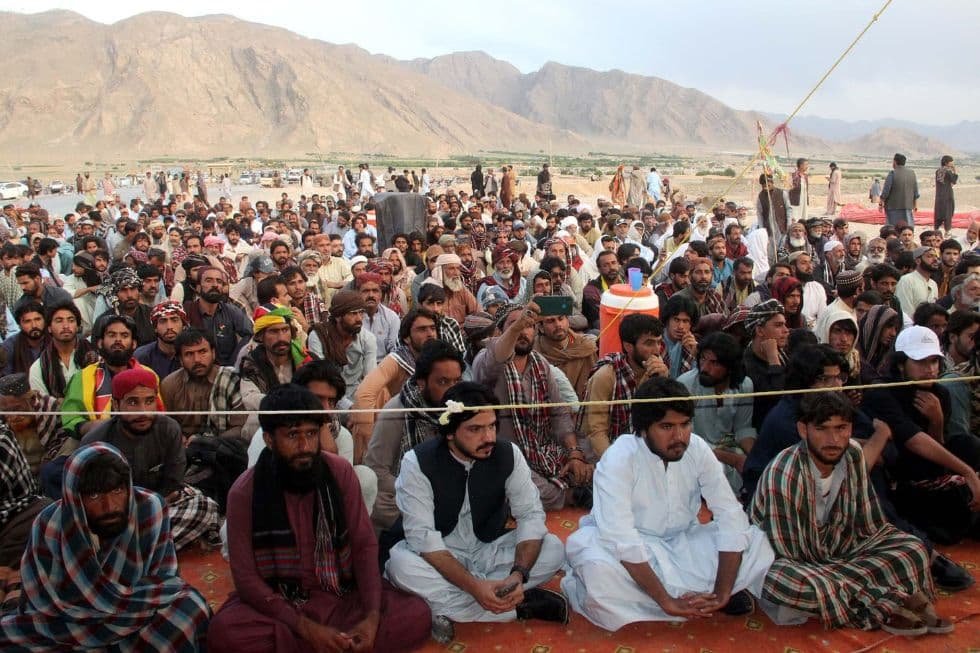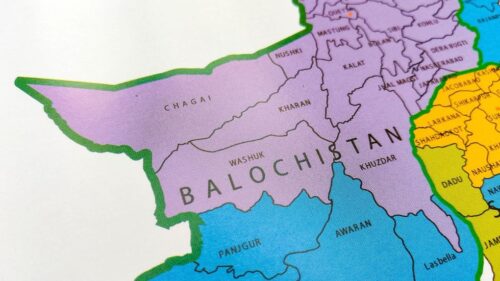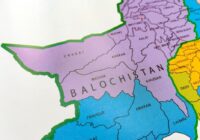The 12-day war between Iran and Israel, triggered on June 13 by Israeli strikes on Iranian nuclear facilities and followed by Iran’s retaliatory attacks, officially ended with a ceasefire on June 24. Still, its shockwaves extended far beyond the immediate conflict zone.
In Pakistan, particularly in Balochistan, the war disrupted cross-border trade, triggered fuel shortages and intensified humanitarian and security concerns. These cascading effects prompted Pakistan’s National Security Committee (NSC) to convene on June 23 to assess not only the strategic and defense implications but also the broader humanitarian fallout threatening socio-economic stability and communal harmony in its most vulnerable western frontier.
Balochistan, Pakistan’s largest and geostrategically most sensitive province, shares a long and porous border (562 miles) with Iran, making it acutely susceptible to the ripple effects of regional conflicts. The recent Israel-Iran war not only destabilized the Middle East but also cast a long shadow over Balochistan, intensifying existing sectarian sensitivities within Pakistan’s diverse social fabric.
As a predominantly Sunni nation with a significant Shiite minority (approximately 15% of the population), Pakistan found itself grappling with the dangerous spillover of sectarian propaganda, targeted violence and renewed proxy activity. The deep-rooted religious and cultural bonds between Shiite communities on both sides of the border amplified these tensions, particularly as someone deliberately wove religious symbolism and sectarian rhetoric into the war narrative.
Security analysts warned that such polarization could provide fertile ground for militant outfits like the Balochistan Liberation Army (BLA), potentially reviving separatist propaganda under the banner of a “Greater Balochistan.” In this highly combustible environment, the intersection of external conflict and internal fault lines poses a serious threat to Pakistan’s national cohesion and border stability.
Baloch activism in response to provocation
Throughout the military confrontation between Iran and Israel, reports have emerged of various activities conducted by Baloch militants in Iran’s Sistan-Balochistan province. During a protest rally at the University of Sistan and Baluchestan, students responded with backlash after Daneil Asadullah, a member of the university’s Islamic Association and an agent of the security forces, made insulting statements against the Baloch people.
Maulvi Tayyeb Ismail Zahi, son of Maulvi Abdul Hamid, in response to the messages and requests of the people following the conflict between Israel and the Islamic Republic, published a story on his Instagram page, emphasizing the dignity, unity and readiness of the Baloch people and called for strategic patience and prayers for the good and glory of the homeland. The anti-regime Baloch activist is campaigning to bring joy to the Baloch people of Giyeh (Nikshahr) and to convey their message to the rest of the world.
Following concerns about the expansion of Baloch activities, the checkpoint, deployment of Special Forces and increased security measures have been implemented at the entrance to Zahedan. This city has been subject to increased security control due to the sensitive location of the main centres of the IRGC, intelligence and command of the forces. In continuation of the revolutionary movements, the Sarbaz-Mehristan axis was closed by Baloch militants.
The Baloch people are blocking the route of military forces and taking control of traffic in various areas. The Baloch Revolutionary Youth closed the Pahra Niskhahr, Chabahar road to control the entry and exit of military forces. According to reports, Talebi Fard, Khamenei’s representative in Fahraj, was eliminated by the Baloch people while fleeing. Reports indicate that Baloch Insurgent groups are intensifying efforts to eliminate government officials in Balochistan. This was the fourth regional attack by the Baloch on government forces after the start of the Israel-Iran war.
Implications for Pakistan’s border security
The recent conflict between Israel and Iran in the Middle East has had profound implications for Pakistan’s border security, particularly in the restive province of Balochistan. Although a ceasefire has temporarily halted hostilities following US-led mediation, the escalation of tensions has renewed concerns over the security of the Strait of Hormuz, a critical maritime chokepoint connecting the Persian Gulf with the Gulf of Oman and the Arabian Sea. Had Iran proceeded with its threat to close the Strait, it would have severely disrupted global trade and oil supplies to the Western world, while also impacting Pakistan. Such a closure would have driven up global oil prices and exacerbated Pakistan’s inflation, currency depreciation and energy shortages.
The conflict particularly intensified in Balochistan, where a significant portion of the population relies on the informal trade of oil and other commodities. This situation highlights the region’s vulnerability to regional instability.
The recent ceasefire between Israel and Iran offers a critical opportunity to halt the immediate conflict and prevent further destabilization across West Asia, South Asia and beyond. While this pause in hostilities provides much-needed relief, the underlying tensions and risks of escalation remain significant. It is imperative that global powers, including the US, Russia, China, Pakistan, the OIC and the EU, build on this moment of calm to pursue sustained diplomatic engagement and collective action.
Establishing a neutral UN-led peace forum to facilitate dialogue, addressing root causes such as economic sanctions, religious extremism, proxy warfare and curbing sectarian rhetoric are essential to fostering lasting stability. Maintaining the ceasefire and providing humanitarian support will be crucial to preventing a return to conflict and safeguarding regional and global security. Failure to capitalize on this fragile peace could lead to renewed violence with far-reaching consequences for global stability.
[Liam Roman edited this piece.]
The views expressed in this article are the author’s own and do not necessarily reflect Fair Observer’s editorial policy.
Support Fair Observer
We rely on your support for our independence, diversity and quality.
For more than 10 years, Fair Observer has been free, fair and independent. No billionaire owns us, no advertisers control us. We are a reader-supported nonprofit. Unlike many other publications, we keep our content free for readers regardless of where they live or whether they can afford to pay. We have no paywalls and no ads.
In the post-truth era of fake news, echo chambers and filter bubbles, we publish a plurality of perspectives from around the world. Anyone can publish with us, but everyone goes through a rigorous editorial process. So, you get fact-checked, well-reasoned content instead of noise.
We publish 3,000+ voices from 90+ countries. We also conduct education and training programs
on subjects ranging from digital media and journalism to writing and critical thinking. This
doesn’t come cheap. Servers, editors, trainers and web developers cost
money.
Please consider supporting us on a regular basis as a recurring donor or a
sustaining member.
Will you support FO’s journalism?
We rely on your support for our independence, diversity and quality.











Comment